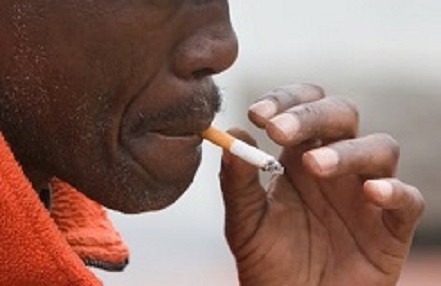
Fast Facts on Cigarette Smoking For Africans
By: DLHA Staff Writer.

Close up of an African man smoking a cigarette. Image credit: Freepik.
Smoking harms nearly every organ of the body and leads to disease and disability.
The tobacco industry is increasing spending phenomenally each year on cigarette advertising and promotions in many African countries.
.
It is estimated that there are about 84 million smokers in Africa currently and this figure is projected to increase by 148% by 2030 if control measures are not instituted.2
Percentage of Africans aged 16 years or older who smoked cigarette in 20123:
Percentage of African children <15 years old who smoked cigarette in 20123:
Note: Current cigarette smokers are defined as persons who reported smoking at least 100 cigarettes during their lifetime and who, at the time they participated in a survey about this topic, reported smoking every day or some days.
Many adult African cigarette smokers have not considered quitting smoking.
National programs on tobacco prevention and control in most African countries are weak or non-existent.
References:
World Health Organization, 2019
World Health Organization, 2016
Blecher E., and Ross, H. Tobacco use in Africa. American Cancer Society, 2013
DATELINEHEALTH AFRICA INC., is a digital publisher for informational and educational purposes and does not offer personal medical care and advice. If you have a medical problem needing routine or emergency attention, call your doctor or local emergency services immediately, or visit the nearest emergency room or the nearest hospital. You should consult your professional healthcare provider before starting any nutrition, diet, exercise, fitness, medical or wellness program mentioned or referenced in the DatelinehealthAfrica website. Click here for more disclaimer notice.